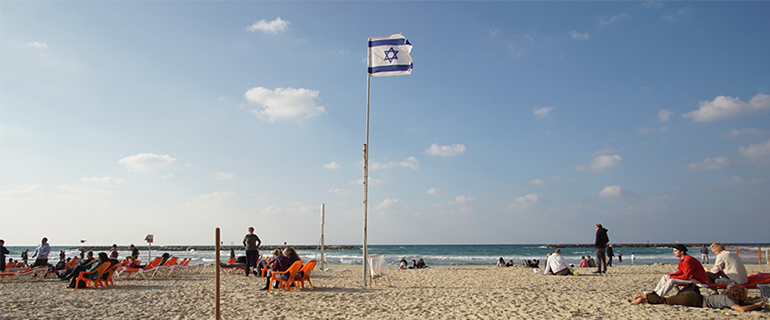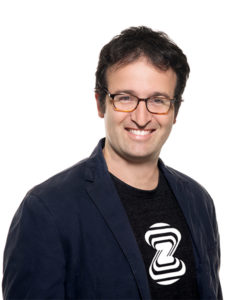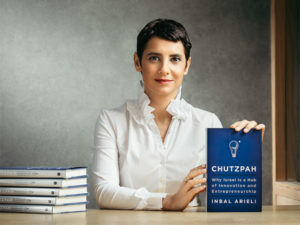Why Does Israel Have So Many Startups?
Tel Aviv contains more startups per capita than any city in the world other than Silicon Valley, according to the 2019 Global Startup Ecosystem Report published by Startup Genome and the Global Entrepreneurship Network. Prior to 2019, Tel Aviv contained the most startups per capita, even beating Silicon Valley. With companies including Google, Nielsen, and Nvidia operating incubators, accelerators, and competitions around Israel, some are even calling Tel Aviv the next Silicon Valley.
But the authors of the Global Startup Ecosystem Report disagree—there’s not going to be a “next” Silicon Valley. Quite the opposite actually; there will be many, and Tel Aviv is just one. Still, the report states, Tel Aviv is unique.
The report points to the Tnufa National Pre-Seed Fund, which is a risk-free grant that the government awards to entrepreneurs based in Israel to explore innovative technology. The fund is one possible reason why so many startups exist there. But it’s not the only one—the study fails to mention several other plausible explanations to the question: Why do Tel Aviv and Israel have so many startups?
Like Israel itself, these theories are interdisciplinary, so it’s hard to say whether their relationship to Israel’s success as a technological hub is an example of correlation or causation. Karina Rubinstein, senior director of business development for the Israel Innovation Authority’s Startup Division, explains that Israelis are defined by their entrepreneurial spirit. From a young age, she says, they’re exposed to a different kind of thinking: “They face challenges where there’s no box at all.”
Part of that is due to the nation’s mandatory military service. All Israelis are drafted into the army, known as the Israel Defense Forces (IDF), at the age of 18 and required to serve at least two years. During that time, they face life-or-death decisions and are exposed to some of the world’s most advanced technology.
Venture capitalist and Zebra Medical Vision CEO Eyal Gura says at Zebra-Med, a digital healthcare startup that incorporates AI into radiology, 100 percent of the Israel-based team has served in the IDF—and Gura says everyone has benefitted from the IDF’s “network.” In addition to exposing troops to advanced technology, the IDF also forces collaboration in high-risk situations, which is vital at a startup like Zebra-Med where teams must seamlessly work together every day.
In terms of funding, many foreign entrepreneurs with no ties to Israel also choose to base their startups in the small country. The Israel Innovation Authority’s Tnufa National Pre-seed Fund may play a role in those entrepreneurs’ decisions.
The Tnufa fund finances entrepreneurs, from Israel and elsewhere, at the ideation stage as long as they successfully secure a visa, with which the Innovation Authority will assist them. Once their visa is approved, they are eligible to apply for the fund, on the condition the operations remain based in Israel. The funding—up to NIS 200,000 over the course of two years—allows recipients to develop their ideas without taking on debt or venture capital.
While raising Zebra-Med’s first venture capital (VC) funding years ago, Gura says he found more success in securing capital in Silicon Valley. But now, he says Israeli VCs are more mature and understand the importance of patience when working toward long-term goals. “VCs are now more willing to bet on unicorns and scale-up companies,” Gura says. There’s less pressure to sell early, he says, which is a key reason why there’s now a record number of unicorns based in Israel.
Inbal Arieli, Israeli entrepreneur and author of the book Chutzpah, says there’s also a cultural reason for Israel’s startup success. It’s common for Israeli parents to encourage an entrepreneurial spirit in their children, and she believes this does influence startup culture there.
She calls this spirit “chutzpah” (which is a word even my American Jewish parents instilled during my childhood). Chutzpah is Yiddish for having nerve and being bold or audacious. It means trying despite the risk of failure, or approaching a problem from perhaps an absurd way.
“Israeli childhood is shaped by challenges and risk in a tribal-like community, where children develop the courage to pursue unorthodox and often revolutionary approaches to change and innovation,” Arieli says. For example, during the holiday of Lag B’Omer, Israelis encourage their children to build fires; the holiday is seldom celebrated outside of Israel.
Go to IEEE The Institue to read the complete article.








